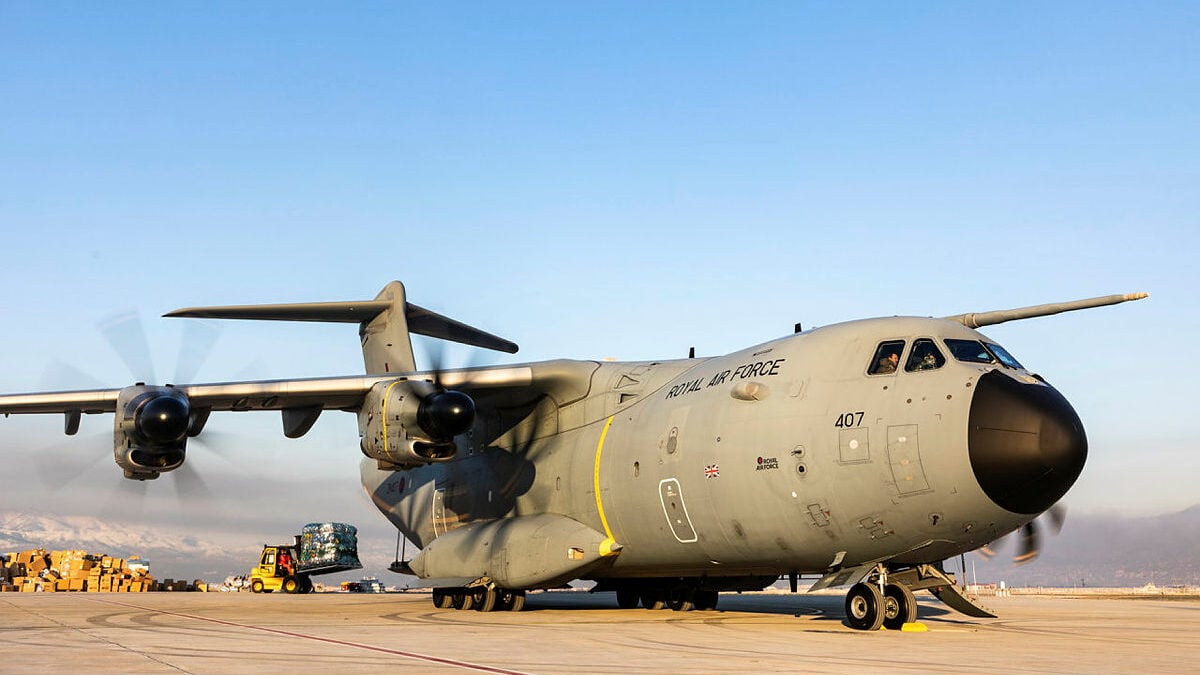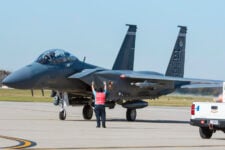
The Airbus A400M airlifter program continues to be overshadowed by risks including development of capabilities and operational reliability (UK MoD)
BELFAST — European prime Airbus warned investors that a variety of risks remain outstanding on the company’s A400M airlifter program, which counts Belgium, France, Germany, Luxemburg, Spain, Turkey and the UK as partner nations.
The risks involve the qualification of new capabilities, operational reliability, meeting cost reduction targets and securing “overall volume” as defined in a revised baseline contract, according to company CEO Guillaume Faury said in a first quarter earnings call Wednesday.
The manufacturer previously paid penalties of €1.2 billion ($1.3 billion) as a result of A400M delays and struggled with a number of technical issues including defective engine gearboxes. As a way to put the program on a more secure financial footing and deliver the full suite of capabilities as agreed to by partner nations, a rebaseline agreement was struck between Airbus and Europe’s Organisation for Joint Armament Co-operation (OCCAR) in June 2019.
But Faury’s admission of technical risks suggests four years later that challenges remain. He said that the A400M program is now progressing to meet a “revised capability roadmap.” His comments come in the wake of reports that Spain is considering cancelling 13 aircraft from an original order of 27 units. As Breaking Defense previously reported, the RAF has however signaled an intent to acquire an additional six aircraft “by the end of the decade” on top of 22 it already ordered.
“We’re always in dialogue with our customers on our products,” said an Airbus spokesperson in a statement to Breaking Defense on the subject of Spain potentially reducing its order.
The manufacturer delivered one A400M over the quarter but the low figure was in line with company targets, added the spokesperson.
Elsewhere, Airbus reported a 21.5 percent drop in orders over Q1 2023, recording a total of €2.5 billion ($2.7 billion) compared to €3.2 billion ($3.5 billion) in Q1 2022. The spokesperson said the drop was due to a significant bump in Q1 2022 attributed to a “large singular order” of the Airbus Eurodrone/European Medium Altitude Long Endurance (MALE) Remotely Piloted Air System (RPAS) in development for France, Germany, Italy and Spain.
Faury said that a preliminary design review of that aircraft, designed primarily for ISTAR (Intelligence, Surveillance, Target Acquisition and Reconnaissance) missions, will take place in the “second half” of 2023.
A first Eurodrone prototype aircraft is scheduled to begin development in 2024, with a first delivery set for the end of the decade, according to French manufacturer Safran, which is under contract to supply Eurodrone wheels and brakes systems. Airbus leads the program at an industrial level.
Israel retires Patriot air defenses as native air defense systems step up
The decision comes amid Ukrainian clamoring for the system, though analysts doubted Israeli batteries would make their way north due to Russian sensitivities.


























